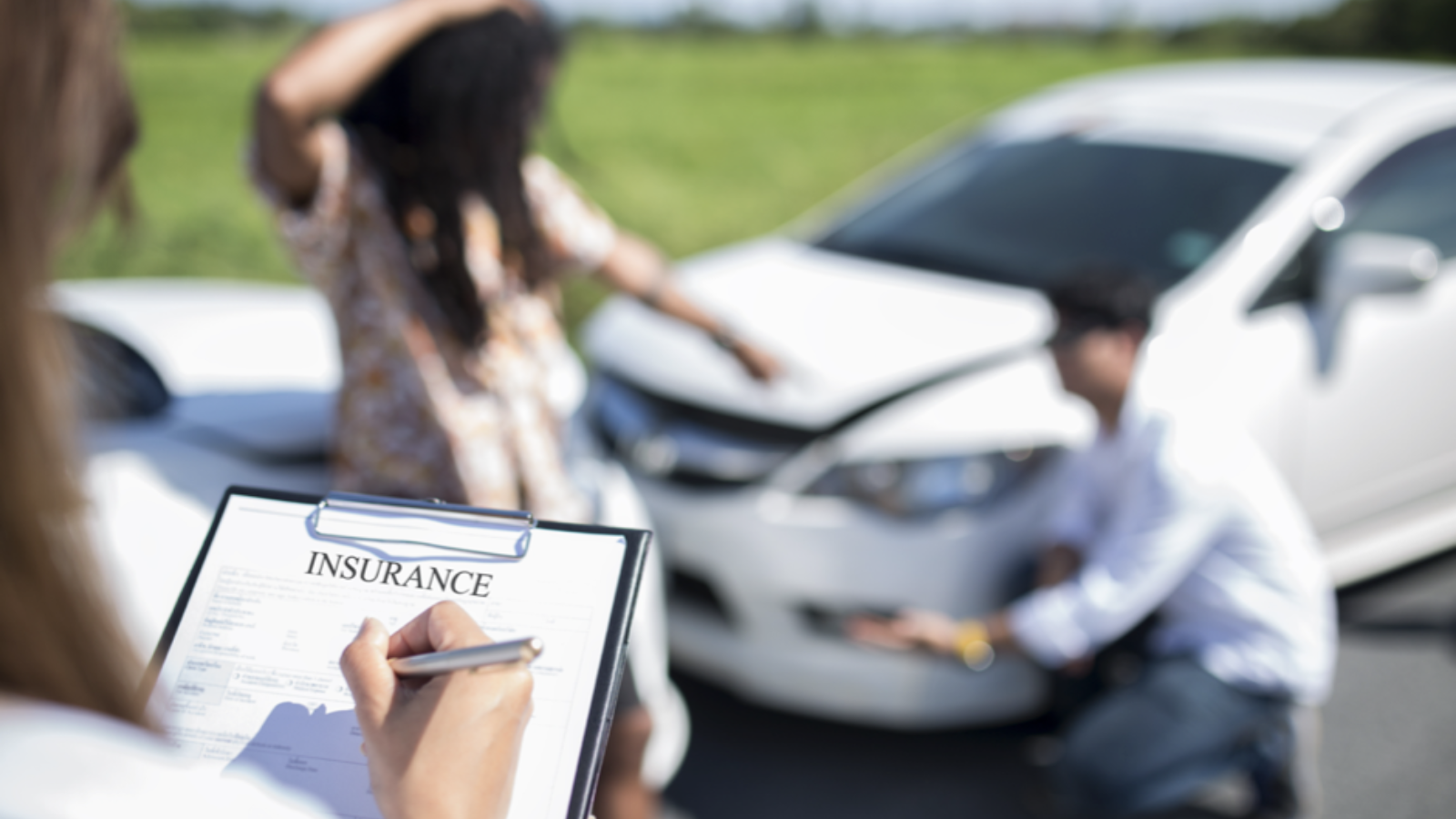Picture this: you’re backing out of your friend’s driveway after a barbecue, and—crunch—you accidentally dent their garage door. Or maybe you’re navigating a tight parking lot at your local grocery store and scrape another car. Your stomach drops, and the first question that pops into your mind is, “Will my car insurance cover this?” After all, these accidents didn’t happen on a public road—they happened on private property. Does that make a difference?
It’s a question that trips up a lot of drivers, and the answer isn’t as straightforward as you might hope. Car insurance can cover accidents on private property, but whether it does depends on a handful of factors—like your policy, the type of accident, and even where it happened. Let’s dive into this topic step by step, unpack the details, and clear up the confusion so you know exactly what to expect if the unexpected happens.
The Basics: How Car Insurance Works
Before we get into the nitty-gritty of private property accidents, let’s lay some groundwork. Car insurance is designed to protect you financially when things go wrong—whether that’s damage to your car, someone else’s property, or injuries. Most policies include a mix of coverage types, such as:
- Liability Coverage: Pays for damage or injuries you cause to others.
- Collision Coverage: Covers damage to your own car from a crash, regardless of fault.
- Comprehensive Coverage: Handles non-collision incidents, like theft or a tree falling on your car.
- Personal Injury Protection (PIP) or Medical Payments: Covers medical bills for you and your passengers.
Here’s the key thing to understand: these coverages don’t usually care where an accident happens—public road, private driveway, or a parking lot. What matters is the nature of the incident and what your policy says. But private property throws in a few wrinkles that can complicate things. Let’s explore why.
Private Property vs. Public Roads: What’s the Difference?
When you think of a car accident, you might picture a fender-bender on a busy highway or a collision at a traffic light. Those happen on public roads, maintained by the government and governed by clear traffic laws. Private property, though, is a different beast. It includes places like:
- Driveways
- Private roads (think gated communities)
- Parking lots (at malls, offices, or apartment complexes)
- Farms or rural land
Since private property isn’t under the same public jurisdiction, traffic rules can be less rigid, and enforcement might fall to the property owner rather than the police. That’s where the confusion starts creeping in. Some drivers assume that because an accident didn’t happen on a public road, their insurance won’t apply—or that the rules are totally different. Spoiler alert: that’s not usually the case.
Does Your Insurance Kick In on Private Property?
Here’s the good news: in most cases, your car insurance follows you onto private property. If you’ve got liability coverage and you smash into your neighbor’s fence while pulling into their driveway, your policy should cover the damage (minus your deductible, of course). Same goes for collision coverage—if you hit a pole in a parking lot and dent your hood, your insurer will likely foot the bill, assuming you carry that coverage.
But there’s a catch: coverage isn’t automatic. It hinges on the specifics of your policy and the circumstances of the accident. Let’s break it down with some real-world scenarios.
Scenario 1: You Hit Someone Else’s Car in a Parking Lot
Say you’re at the mall, circling for a parking spot, and you misjudge a turn, clipping another car. If you’re at fault, your liability coverage should cover the damage to their vehicle, just like it would on a highway. If you’ve got collision coverage, your own repairs can be covered too. Parking lots are a hotbed for these kinds of accidents—according to the Insurance Institute for Highway Safety (IIHS), about 20% of all auto insurance claims stem from parking lot incidents. So, insurers are well-prepared to handle these claims, private property or not.
Scenario 2: An Accident on Your Own Property
Now imagine you’re backing out of your own garage and accidentally ram into your spouse’s car parked in the driveway. Will insurance cover it? If you have collision coverage, yes, it should cover your car’s repairs. But here’s where it gets tricky—some policies exclude coverage for damage to property you own or share with household members (like your spouse’s car). You’d need to check the fine print or call your insurer to confirm.
Scenario 3: Someone Else Hits You on Private Property
What if you’re the victim? Let’s say a delivery driver plows into your parked car in your driveway. Their liability insurance should cover your damages, assuming they have it. If they don’t—or they flee the scene—you might need to tap into your own uninsured/underinsured motorist coverage, if you carry it. Again, the location (private property) doesn’t void the claim; it’s all about who’s at fault and what coverage is in play.
The Exceptions: When Coverage Might Not Apply
While insurance usually extends to private property, there are a few situations where you might hit a wall (figuratively this time):
- No Collision Coverage: If you only have basic liability insurance—say, to meet your state’s minimum requirements—damage to your own car won’t be covered, whether you crash on a road or in a parking lot.
- Intentional Damage: If you deliberately ram into something (think road rage in a private lot), your insurer will almost certainly deny the claim. Insurance is for accidents, not tantrums.
- Commercial Property Rules: Some private properties, like paid parking garages, might have their own insurance or liability waivers. If you signed something agreeing to hold the property owner harmless, your claim could get messy.
- Off-Road Adventures: If you’re driving on private land—like a farm or a friend’s wooded acreage—and crash into a tree, your standard auto policy might not apply if the vehicle wasn’t on a “road” or driveway. Off-road incidents often fall under different rules or require specialized coverage.
What the Experts Say
To get a clearer picture, I dug into some insights from insurance professionals. According to the American Property Casualty Insurance Association (APCIA), the vast majority of standard auto policies don’t distinguish between public and private property for basic coverage like liability and collision. “The location of the accident is rarely the deciding factor,” says Lynne McChristian, a spokesperson for the Insurance Information Institute. “It’s more about the type of loss and the coverage you’ve purchased.”
That said, it’s always smart to double-check your policy. A 2022 survey by the National Association of Insurance Commissioners found that 1 in 5 drivers didn’t fully understand their coverage limits—don’t be one of them.
Real-Life Example: The Parking Lot Pile-Up
Let me tell you about a case that stuck with me. A friend of mine, Sarah, was pulling out of a grocery store lot when another driver sped through and T-boned her car. Both vehicles were totaled, and since it was a private lot, Sarah worried her insurance wouldn’t cover it. Turns out, the other driver was at fault, and their liability insurance paid for Sarah’s repairs. Her own collision coverage handled the rest, and the private property angle didn’t change a thing. The lesson? Don’t assume you’re out of luck just because you’re off the main road—let your policy do the talking.
Tips to Protect Yourself
Want to avoid headaches if an accident happens on private property? Here’s what you can do:
- Know Your Policy: Pull out that insurance paperwork (or log into your app) and see what’s covered. Look for exclusions or limits tied to location or property ownership.
- Document Everything: If you’re in a crash, snap photos, get witness info, and report it to your insurer ASAP—private property or not.
- Consider Extra Coverage: If you often park in tight lots or live in a busy area, collision and uninsured motorist coverage can be lifesavers.
- Talk to Your Agent: When in doubt, a quick call can clarify how your policy applies to private property scenarios.
Wrapping It Up: The Bottom Line
So, does car insurance cover accidents on private property? Most of the time, yes—it’s less about where the accident happens and more about what happened and what coverage you’ve got. Whether you’re crunching a mailbox in a driveway or scraping a car in a parking lot, your policy is likely designed to step in, assuming you’ve got the right protections in place. But don’t take it for granted—exceptions exist, and the details matter.
Next time you’re maneuvering through a crowded lot or pulling into a tricky driveway, breathe a little easier knowing your insurance probably has your back. Just keep an eye on that policy fine print—and maybe practice your parallel parking while you’re at it. Accidents happen, but being prepared can make all the difference.

